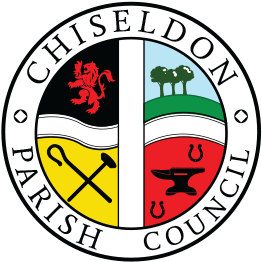With the energy price cap now in effect, Swindon Borough Council is signposting residents who may be concerned about rising energy costs to various forms of support.
The energy price cap, which controls what most households pay for energy, rose by 10 per cent from 1st October to £1,717 a year for a typical dual-fuel household paying by Direct Debit. The cap is also expected to rise again from January 2025.
The Council is highlighting five practical steps residents can take if they are worried about their energy bills over the coming months. Residents can:
[1] Call Warm & Safe Wiltshire (0800 038 5722) for free and impartial advice and support on how to keep their home warm and reduce their bills.
Set up by the Council and partners back in 2015, Warm & Safe Wiltshire helped 1,123 Swindon households in 2023/24 save a total of £146,000 on their energy bills. The services range from light-touch, simple advice, such as using heating controls effectively to in-depth support, home visits and casework for people with more complex needs. This might include referring people for debt advice or making sure they are claiming the benefits they need.
[2] Check if they are eligible for free or lower cost insulation
The Great British Insulation Scheme, funded by energy companies, offers free or cheaper insulation to reduce home energy bills. Homeowners, landlords or tenants (either renting privately or from a housing association with their landlord’s permission) can apply if their property has an energy performance certificate (EPC) of D to G and is in Council Tax bands A to D.
Another scheme is Connected for Warmth, which is funded by National Grid and offers fully-funded cavity wall insulation and loft insulation. Homeowners and tenants of privately rented properties (with their landlord’s permission) can apply if their property has an EPC of C or below and is in Council Tax bands A to D.
[3] Check if they are eligible for Pension Credit and a Winter Fuel Payment
The Government estimates that around 850,000 eligible pensioners are missing out on Pension Credit, worth on average up to £3,900 per year. From this winter, residents who claim Pension Credit will be automatically eligible to receive the Winter Fuel Payment, an annual tax-free Government grant of usually between £200 and £300 to help towards the cost of energy bills.
It is possible to apply for Pension Credit and have the claim backdated by up to 3 months, so long as there is entitlement during that time. This means that the latest date to apply and still qualify for a Winter Fuel Payment is Saturday 21 December 2024.
[4] Check Martin Lewis’ Money Saving Expert website for a list of tips on how to cut energy usage and potentially save hundreds of pounds
For example, turning a thermostat down by just one degree could save around £100 a year on average for a typical home. Residents with a combi boiler (the most common type, one without a hot water cylinder) could save up to £65 a year on their gas bill by reducing the flow temperature. It’s also worth regularly checking the pressure gauge on boilers. This tells you the pressure of the water circulating in the heating system. If it is too low, it will make the system inefficient, using more energy to heat the home to the required temperature. People can can save around £70 a year by turning radiator valves down to between 2.5 and 3 in rooms they don’t use.
[5] Contact their energy supplier as soon as they can if they are worried about paying their energy bills, are in debt to their supplier or can’t afford to top up their prepayment meter
Energy suppliers must work with customers to agree on a payment plan they can afford under Ofgem rules. This includes reviewing a plan customers have agreed before. Those in debt to their energy supplier might be able to apply to them for a non-repayable hardship grant to help pay it off.
Meanwhile the Government also recently confirmed that the Council will receive an additional £1.5m as part of the extended Household Support Fund, between October 2024 and the end of March 2025. The Council is currently identifying how the funding will be allocated to support residents struggling most with the cost of food, energy and wider essentials.
Cllr Jim Grant, Cabinet member for Communities and Joint Working, said: “As residents start to turn their heating on, and with the energy price cap increase kicking in this month, we know some residents will be worried about their energy bills this winter.
“Helping support local residents who may struggle to pay for necessities, such as heating, is a key priority for us, so it’s a timely reminder that the Warm & Safe Wiltshire Service is available on 0800 038 5722 to provide free and impartial energy-saving advice to help residents manage their energy costs and keep their homes warm. It has a track record of helping many thousands to save money on their energy bills.
“The Council is here to help residents find the support they need, and so local people can also visit the cost of living page on our website where we’ve highlighted help and support available.”
Elena King, project manager at the Centre for Sustainable Energy, said: “Through our Warm & Safe Wiltshire advice line we know the rising cost of energy continues to impact households across Wiltshire.
“Our experienced advisors offer free, impartial guidance on reducing energy bills and making homes warmer. Being warm enough at home is a basic human right, not a luxury. While we address immediate needs, we’re also advocating for long-term solutions – including targeted support for low-income households, improved home insulation strategies, and increased investment in renewable energy.
“We urge Swindon residents to reach out to us for personalised advice and we’ve got loads of information on our website on reducing energy bills and creating more sustainable, comfortable homes.”
